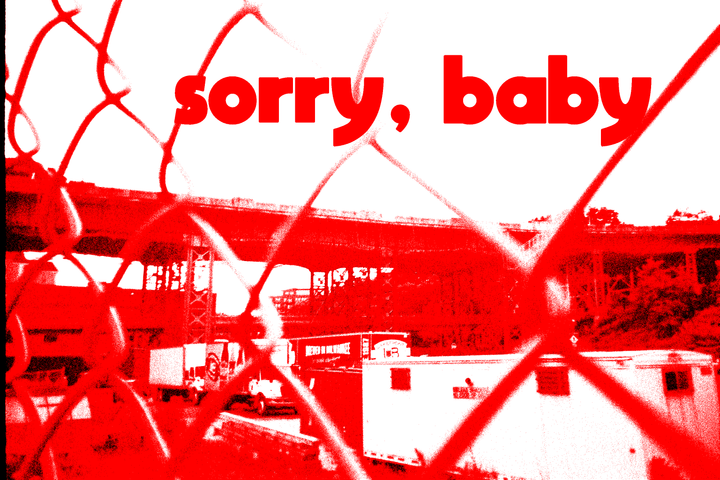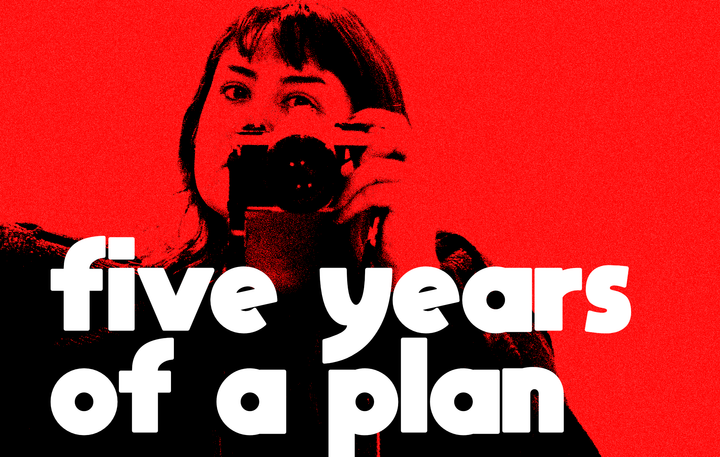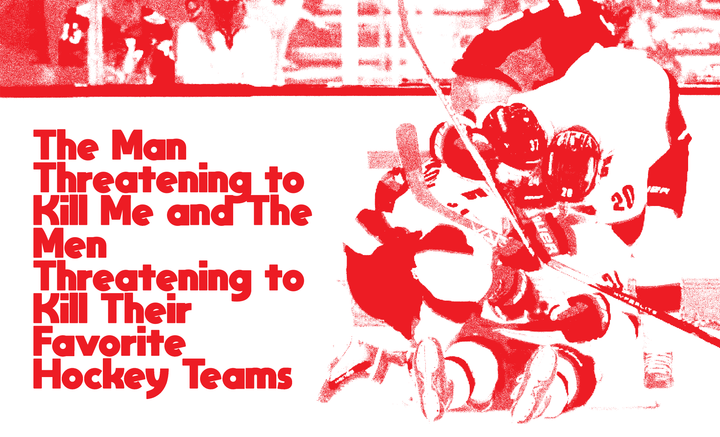i want you to know what i forgive you for
an essay about forgiveness or something like that.

Have had somewhat of a tough go of things the last few months. Maybe the last two years, really. It's kind of a copout to publish something online that I wrote for a zine, especially when the last thing I put up here was just that, but I'm doing that today. It was mostly written in the last part of last year while reckoning with a lot of pain caused by someone I trusted for a long time and the anger that came over me in waves over several months. It's about forgiveness and connection and relationships and "Requests" by John K. Samson. I hope you like it anyway.
I'll try to post something new soon.
My most significant romantic relationship ended in a tiny Philadelphia apartment. I was too scared to admit it had to happen. He was too careless to recognize how much he’d done wrong. The city flooded that night and I cried until I couldn’t anymore. He bought cigarettes like he always did when we weren’t doing well. Then, finally, he looked at me and said, “do you want to watch the Bomb The Music Industry documentary?”
So we did. I could read into something about the end of a relationship and how that documentary is about the end of that band, but I won’t. It was just something we both liked and knew about a band I loved because of him. He left his vinyl copy of their best album in what is now my apartment alone and I don’t intend to give it back.
Most days I don’t resent the people I’ve dated. Even when there’s pain, what remains is the art we could share and that’s worth holding onto. The only point of engaging with art, as far as I can see it, is to share human connection– be it with the artist showing you something about yourself or with the people you love. Even when someone’s actions have done you harm, it is more worthwhile to forgive and recoup as much positivity as possible.
But one evening in December, I’m listening to a song by John K. Samson. I listen to his voice, clear and uncrowded, open with the statement “I want you to know what I forgive you for” and for the millionth time this phrase settles deep in my body. The song is about a greater experience of genealogical exploration, but the idea of a distant forgiveness— unknown by the recipient— sits with me.
I’ve been told over and over how forgiveness is necessary in healing from pain someone else caused, but today I find myself rejecting the grace of forgiving in silence.
When we broke up that night in Philadelphia, he got to thank me for helping him grow up before he left for good. I had to pick up all the pieces of my destroyed apartment, brain and body. And now I want to yell that he destroyed me. I want him to know what he did and feel how it hurt. I want him to know how much grace I’m affording him by couching my explanation of our break up in assurances that I don’t think he’s a bad person. That it was a mistake. That he didn’t know how drunk I was despite knowing me better than anybody else. I want him to grovel in thanks for that. He should be groveling in thanks for that.
I want to yell that he doesn’t deserve to go to the shows I now have an extra ticket to. I want him to know that without being told. When I see him to get back a camera my uncle gave to me, he tells me he wants to get into the first album I ever bought on vinyl and my most recent favorite band— even though he always hated my favorite song and made sure I knew it. I want to tell him no. I want to guard those things. You don’t get to do that anymore. I want to vomit all the bitterness and vitriol he made me feel toward myself back into his face.
But instead I say nothing. I email him tickets. I go to the first show and we speak politely at his request to, “talk like normal people,” even though every part of me wants to scream what he did at his friends. Instead I just choose not to go to the second show. I recommend the best song by each band he mentioned wanting to listen to, but not my favorite.
And now I sit on this train reading a book a friend gently recommended in an attempt to help make sense of the pain. She said it helped her. So far it’s just made me cry. Maybe that’s what she meant.
For the first time in my life, I resent connection. I resent everything we ever did together. All the playlists we made together on car trips and days spent sitting next to each other on subway cars— him reading while I listened to my headphones. I resent how much of my life is buried in the sharing of music and art.
But then I open Twitter and see couples celebrating their origins– in bands, on the internet, at house shows, writing for the same blogs. Even if those things end poorly, for now it's nice. For now it's beautiful. All these people I consider important–these people who love me– come from the same things I feel so much bitterness for when I think about the person who hurt me most. They come out of the sharing of art.
And, with that, all my resentment melts away. The pain of regret is replaced with the reminder that entwining your life with other people doesn’t have to feel like knives.
Art only has the power we allow it to have, so I’ll sit and I’ll listen to the songs loved best by the people I loved and it won’t feel so bad.
Whenever I forgive him, he doesn’t need to know.
Miranda Reinert is a music adjacent writer, zine maker, and law school drop out based in Philadelphia. Follow me on Twitter to track my emotional downturns through just how often Winter Wheat is my most played album of the week: @mirandareinert. I also have a paid tier of this newsletter for $5 a month or $45 a year! If you do that I'll give you at least one free zine if you respond to this email with a mailing address! Wow! Might want to get in on that! You may also just send me small bits of money at @miranda-reinert on venmo if you want. But as always, thanks for reading!



Comments ()